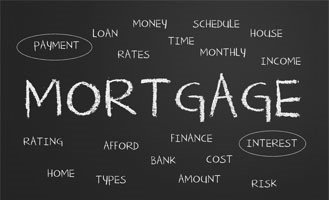8.5 Critical Things NOT to Do Before Closing on Your Mortgage!

Securing a mortgage is a significant step in the home-buying process, and as you approach the finish line, it's crucial to exercise caution. Certain actions can potentially jeopardize your mortgage approval or affect the terms of your loan.
We have worked together to secure financing for your mortgage. You are getting a great rate, favourable terms that meet your mortgage needs, the lender is satisfied with all the supporting documents. We are broker complete, and the only thing left to do is wait for the day the lawyers advance the funds for your mortgage.
In my blog post, we'll explore the 8.5 things you should avoid doing before your mortgage closes to ensure a smooth and successful home purchase.

1. Don't Switch Jobs or Careers: Stability is key during the mortgage approval process. Changing jobs or careers can raise red flags, as lenders prefer a consistent employment history. Try to maintain your current employment situation until after closing.
2. Avoid Major Financial Changes: Making significant financial changes, such as large purchases (i.e., new vehicle, furniture, hot tub, investments etc.) and taking on additional debt, can impact your debt-to-income ratio and raise concerns for lenders. Hold off on ALL major transactions until after your mortgage has closed.
3. Steer Clear of New Credit Accounts: Opening new credit accounts can result in hard inquiries on your credit report, potentially affecting your credit score and, subsequently, your mortgage approval. Postpone any new credit applications until after closing.
4. Large Cash Transactions Are Risky: Large cash deposits or withdrawals can complicate the documentation process. Lenders Anti-Money Laundering rules require clear and traceable records of your financial transactions, so avoid any major cash- related activities.
5. Please Don’t Close Existing Credit Accounts: Closing credit accounts can impact your credit utilization ratio and, consequently, your credit score. Keep your existing credit accounts open until after the mortgage has closed.
6. Respond Promptly to Lender Requests: During the closing process, your lender may request additional documentation or information. It's essential to respond promptly to these requests to avoid delays in the closing. Clear communication and cooperation with your lender are key to a smooth mortgage closing process.
7. Don’t Co-sign for a Loan or a Mortgage for Someone Else: You may have the best intentions in the world, but if you co-sign for any type of debt for someone else, you are 100% responsible for the full payments incurred on that loan. This extra debt is added to your expenses and may throw your ratios out of line. Lenders base their decisions on your current financial status, and changes can complicate the approval process.
8. Maintain Timely Payments: Late payments on existing debts can negatively impact your credit score and potentially lead to issues with your mortgage approval. Ensure that all your payments are made on time.
8.5 Don’t Accept Unsolicited Mortgage Advice from Unqualified Individuals Although this point is least likely to impact the approval of your mortgage status, it is frustrating when people who don't understand you and your unique mortgage financing situation, give you unsolicited advice about what you should do with your mortgage, making you second guess yourself.
Conclusion: As you approach the closing of your mortgage, being mindful of these key actions to avoid can help ensure a successful and timely conclusion to the home-buying process. By maintaining financial stability and cooperation with your lender, you'll increase the likelihood of a smooth transition into homeownership.
Any questions? Give me a call and let’s discuss a mortgage that works for you (not the bank)!
Kelly Hudson
Mortgage Expert
Mortgage Architects – A Better Way
Mobile 604-312-5009
Kelly@KellyHudsonMortgages.com
www.KellyHudsonMortgages.com






